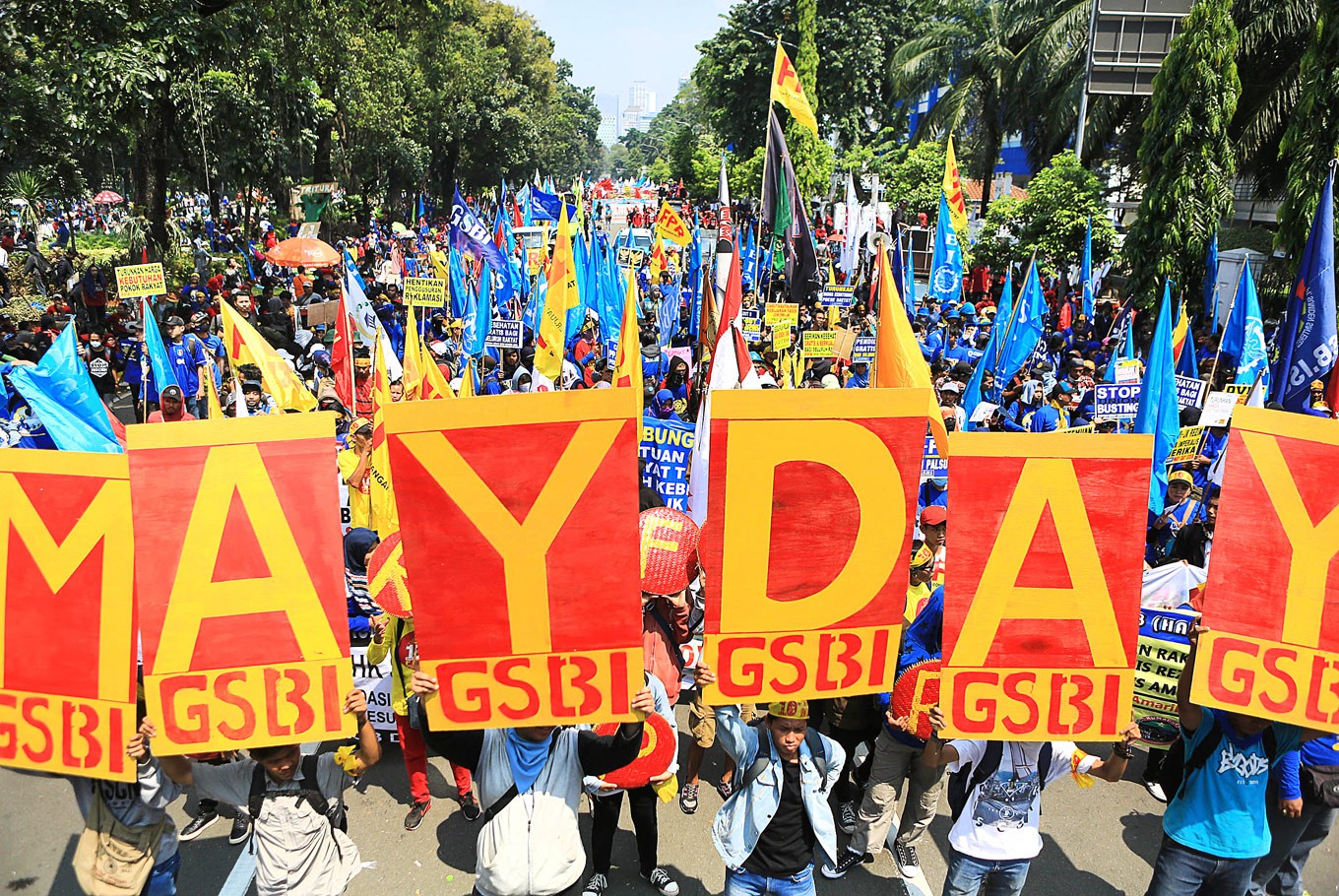Popular Reads
Top Results
Can't find what you're looking for?
View all search resultsPopular Reads
Top Results
Can't find what you're looking for?
View all search resultsLabor Party 4.0? Indonesian workers revive old political vehicle
The revival of the Labor Party marks another shift in Indonesian labor politics.
Change text size
Gift Premium Articles
to Anyone
O
n Oct. 5, 2020, millions of Indonesian workers suffered their worst defeat since the Reform Era with the enactment of the omnibus Job Creation Law.
The legislation was a blow to trade unions. It contains provisions that they say roll back the policy achievements they had gained throughout the years, mainly through street politics and electoral bargaining with politicos at the local and national levels.
The passage of the law, writes political scientist Teri Caraway of the University of Minnesota, “was a resounding defeat for labor unions and marked the culmination of a multi-year effort to clip labor’s wings.”
Defeated and disillusioned, the labor unions have now come to the realization that they can no longer rely on the existing political parties — not one of them could be formally classified as a party of the working class — to further their interests.
On Tuesday, exactly one year after the enactment of the omnibus law, they declared the revival of the Labor Party and their intention to take part the 2024 general elections.
“The jobs law is what triggered the revival of the Labor Party. We want to fight in the legislature, and not just on the streets,” said Said Iqbal, the president of the Confederation of Indonesian Trade Unions (KSPI), shortly after being elected the new chairman of the party on Tuesday.


















